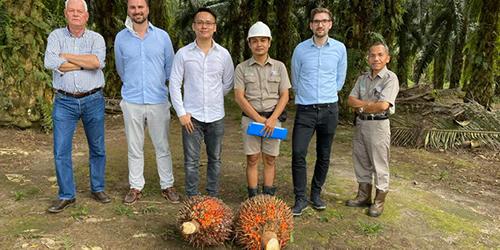 With the human population expecting to reach 8.6 billion by mid-2030, food production needs to increase rapidly to meet the demands of the burgeoning population. To increase crop yields, inputs like fertilizers and pesticides need to be added. By doing so, greenhouse gases are emitted which has negative effects on the environment.
With the human population expecting to reach 8.6 billion by mid-2030, food production needs to increase rapidly to meet the demands of the burgeoning population. To increase crop yields, inputs like fertilizers and pesticides need to be added. By doing so, greenhouse gases are emitted which has negative effects on the environment.
In order to mitigate these effects, we are committed to creating a sustainable and efficient food system by integrating our technical expertise, agricultural assets and unique processes while consciously taking measures to reduce our carbon footprint on the environment. Furthermore, regular educational sessions are conducted for our partners, clients, and employees pertaining to practices and innovations that promote environmental sustainability.
Through rigorous discussions with various academics and scientists around the world, we found that there are solutions that could be implemented on our end to reduce the emissions associated with fertilizer production.
By sharing with our suppliers techniques such as carbon capture and storage, biomass gasification, or renewable electrolysis, the negative consequences towards the environment can be reduced. Notably, there are studies which suggest that biomass gasification reduces Global Warming Potential (GWP) by 52%. Technologies such as foliar application, fertigation, and urea deep placement have also exhibited stellar results.
We truly believe that farmers and the fertilizer industry as a whole should work in tandem to spread the message and conduct training programs and informative seminars for every stakeholder group involved. This will ensure that the world’s farmers can continue providing food sources while keeping the adverse environmental effects to a minimum.